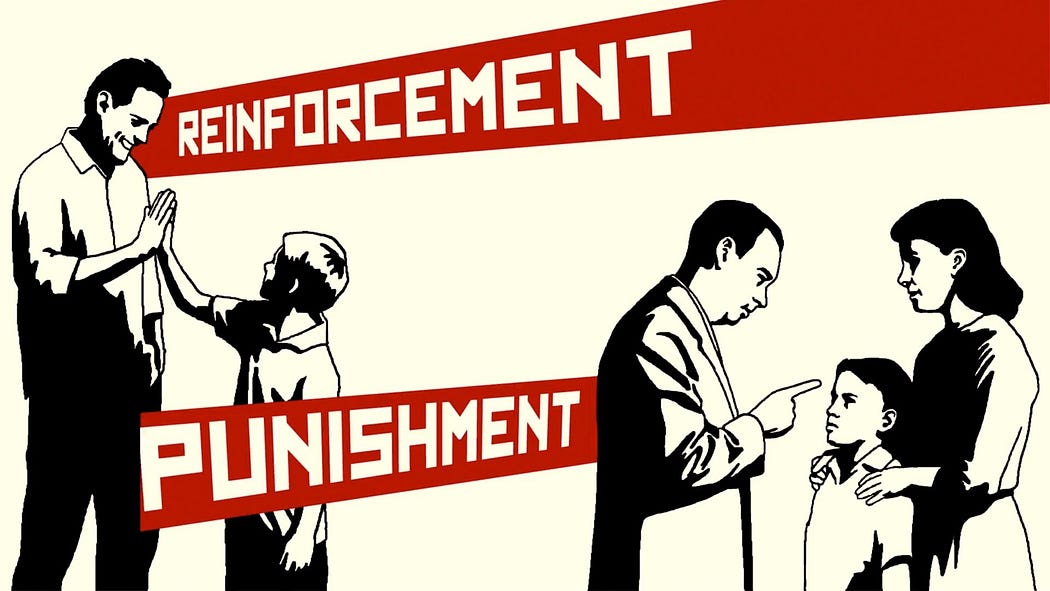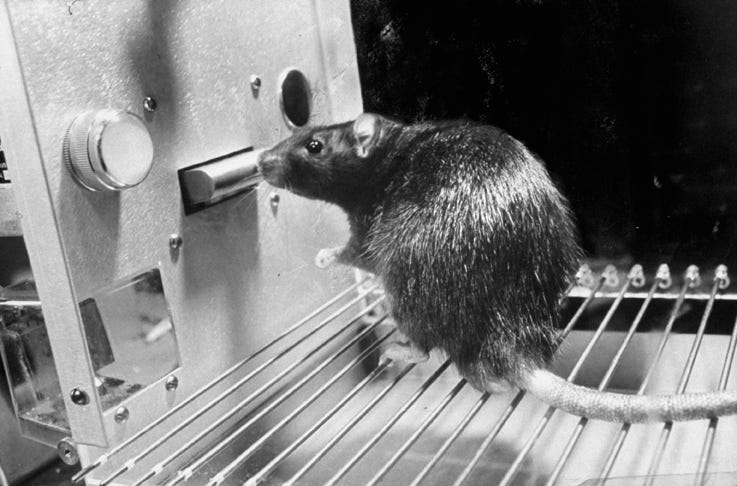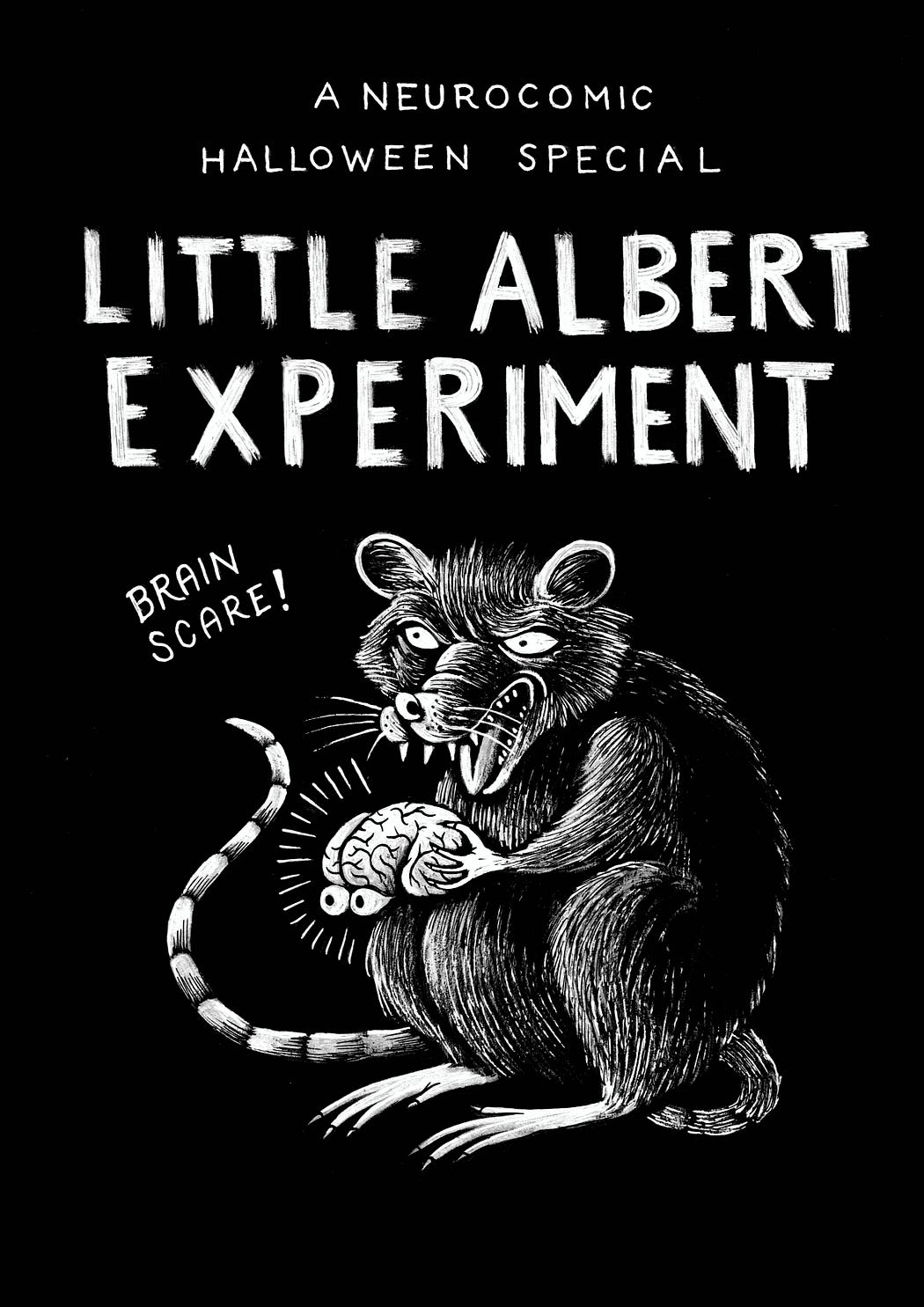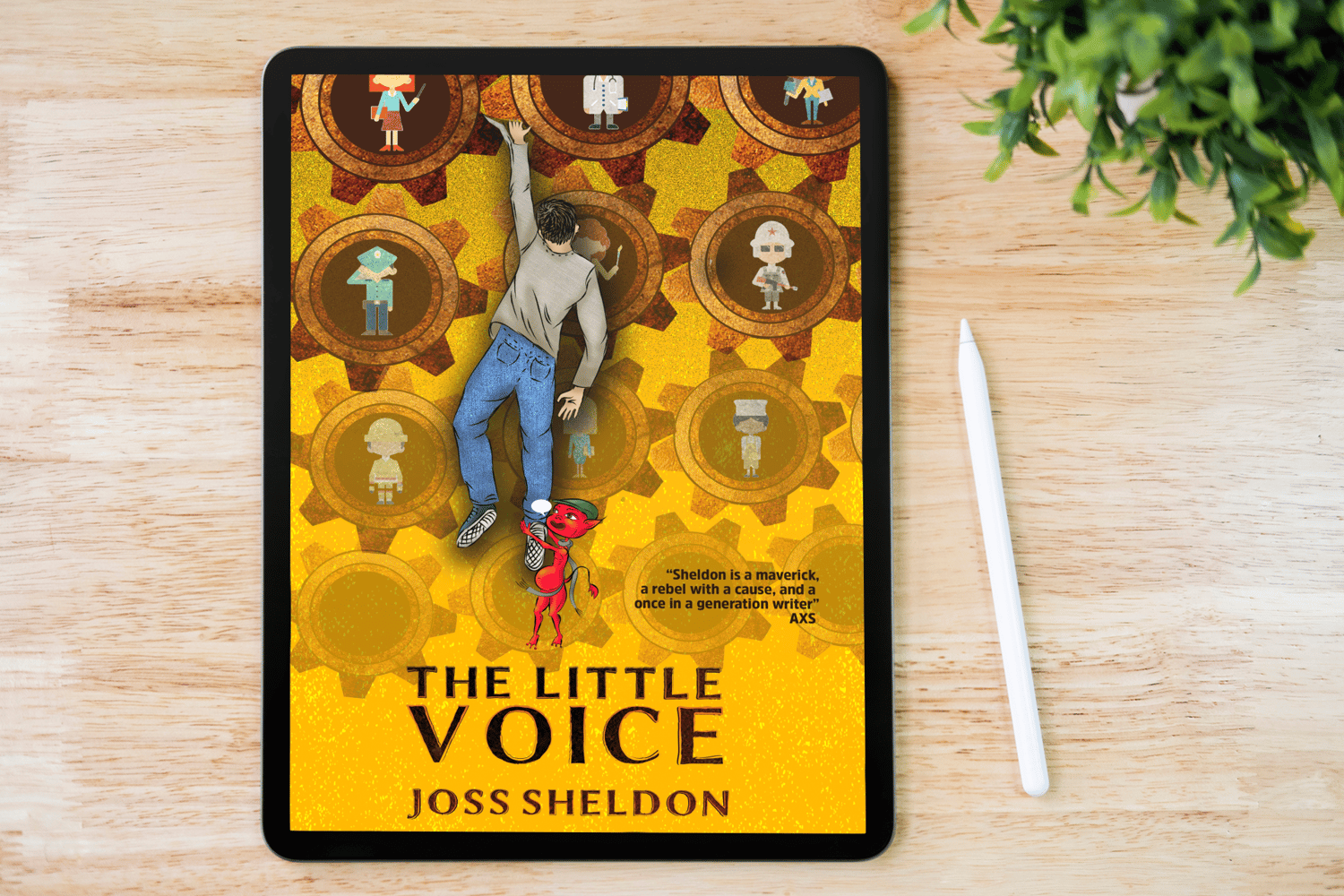I was expelled from school. Twice. And, looking back on it now, I must say that I’m incredibly proud of myself for that.
Of course, that’s not how I felt about it at the time.
Being expelled was crushing. A real rejection. I felt like my teachers were telling me, “You’re just not the right sort of person for our classes”. Like my headmasters were telling me, “Your sort of personality simply can’t be tolerated here”. And like my parents were telling me, “They’re right you know — you deserve to be punished — you should behave like the other children. The good children.”
Given that those people were my so-called “Superiors”, I took their views to heart. I believed them. I believed that I simply was not the right sort of person. That I needed to change. That I needed to forgo my own individuality, and become the person my teachers and parents wanted me to be.
Repeated punishments can have that sort of effect on a young mind.
In time, I did conform. I was always a rebel deep down, but I rarely let it show. After attending a special school for youngsters with “Behavioural Problems”, I was integrated back into mainstream education. I behaved like a good little boy, most of the time. I studied hard. And I was rewarded — I got straight As.
My teachers and parents weren’t so harsh on me after that. They weren’t overtly happy with me, as such, but they weren’t so critical either.
I, on the other hand, was completely crushed. I’d denied myself — my true, inner-self. I was a walking, talking, living fraud. I’d survived, but I was hardly happy.
It took me many years, decades in fact, to realise what had happened; that my fear of being punished had stopped me from behaving naturally.

This is the main theme of my new novel, ‘The Little Voice’, which is available to buy here. At its core is a broken individual, Yew Shodkin, who tells us of his struggles for inner-peace. On the one hand, he wants to be himself; his true self. On the other hand, he is powerless to stop the pressures I have just mentioned.
But The Little Voice goes further than this. It doesn’t just tell Yew’s story, it also explains the psychological context. In doing so, it helps to explain the social pressures which can affect us all.
I’m no psychologist, but I do find psychology fascinating. What’s more, I’ve found that many basic psychological concepts are easy to understand. This is because they’re usually backed up by experiments which tend to be interesting and entertaining in their own right.
One such study was performed by a chap called B. F. Skinner. I included it in The Little Voice. Here’s what I wrote:
“Skinner set up an experiment in which a hungry rat was placed inside a box. Whenever it pressed a lever it was rewarded with a treat, which was delivered through a plastic tube.
At first, Skinner’s rats acted in a random manner. But, in time, they all pressed the lever by accident, for which they received a treat. They soon realised that they could receive more treats by pressing the lever more times. And so they pushed the lever over and over again.
Operant Conditioning had converted those rats into lever pushers.
Skinner then adapted his experiment. This time, the rats were subjected to an electronic current which ran across the floor.
The rats soon learnt to press the lever in order to stop that current.
Then Skinner introduced a light, which turned on just before the current.
In time, the rats learnt to tap the lever as soon that light came on, to avoid receiving an electric shock. Even when the electronic shocks were turned off, the rats still pressed the lever whenever they saw the light.”

The ‘Skinner Box’
John Watson and Rosalie Rayner took this experiment further:
“They showed a baby called Albert some masks, a monkey, a rabbit and a rat. I don’t know what it is with psychologists and rats. I think they’ve got some sort of fixation on the little buggers. But anyway, little Albert was fine with all the things he was shown; he didn’t react to them at all.
Then the psychologists struck a hammer against a steel bar. Little Albert burst into tears. The noise had terrified him.
When Albert was eleven months old, the psychologists showed him the rat again. As they did this, they hit the steel bar.
Little Albert burst into tears, because he was terrified by the noise. And he burst into tears every time this process was repeated, once a week, for seven weeks.
In the end, Albert associated the scary sound with the rat. And so he became fearful of the rat itself. He cried and tried to crawl away whenever he was shown it, even when the steel bar wasn’t struck. And he acted in a similar manner whenever he saw other things which reminded him of the rat; things like the family dog, a fur coat, some cotton wool and a fake Father Christmas beard.”

Skinner called this process “Operant Conditioning”.
The idea is fairly straightforward; that people will behave how you want them to behave, if you reward them when they behave in that manner. They won’t act in other ways, if you punish them whenever they do so.
I told you psychology was pretty simple! This is pretty common-sense stuff: Reward the behaviour you want to encourage, punish the behaviour you want to discourage, and soon people will behave in the way you choose. You don’t even need to say “Abracadabra”! It’s hardly brain surgery.
Reading Skinner’s work helped me to clarify my thoughts. But they didn’t tell me anything I didn’t already know. I already knew, deep down, that I had been subjected to Operant Conditioning whilst I was at school.
I was subjected to punishments whenever I behaved in a way my teachers disapproved of:
The first time I can remember being punished was when I was just four years old. My teacher used to make me sit at her feet, in silence, next to a radiator which was always ridiculous hot. My ears used to turn bright red! It was a pretty uncomfortable experience for a wee, little four year old!
Over the years I was banned from taking part in after-school activities and class holidays. I wasn’t allowed to play for my school’s football team. I was made to sit outside the headmaster’s office during breaks. Finally, I was suspended and then expelled.
At home, my dad smacked me and sent me to my room whenever I acted in a way he didn’t like. My mum washed my mouth out with washing-up liquid when I swore.
At the same time, my work was always rewarded. The biggest praise I ever received was when I submitted a good piece of classwork. I got gold stars, house points, good grades, and great feedback on my report cards.
It took a full decade, but in the end I stopped misbehaving, apart from on a the odd rare occasion. I started to work as hard as anyone I knew. I was a right little geek!
The punishments and rewards, threats and bribes, had completely changed my personality.

I hid my true face behind a mask
But was I happy? Were the rats in Skinner’s experiment happy? Was baby Albert happy?
This is how I put it in The Little Voice:
“I mean, think about it. Skinner got those rats to behave exactly as he wished; he converted them into good little lever pushers. But do you think those rats were happy? Really happy? Do you think they liked being electrocuted? I mean, who likes being electrocuted? Don’t you think those rats would have preferred to be free to run around the sewers, doing ratty things like eating cheese and gnawing on cables?
And what about little Albert? Do you think he wanted to be terrified of anything which remotely resembled a rat? He was acting exactly as the psychologists had hoped, but I doubt he was truly happy.
Well, I was the same. I wasn’t happy. How could I be?”
I couldn’t be happy, because I couldn’t be me. I was being the person others wanted me to be, and in order to do that I had to deny my own true self.
It took me many years to realise that. And, when I did finally realise it, I realised that my two expulsions weren’t anything to be ashamed of. No. They were things to be proud of!
I’d always known that I’d been expelled because I wasn’t being the person others had wanted me to be. My teachers and parents had made that abundantly clear. But it took me a while to realise the flip side of that sentiment; that I had also been expelled for being myself. My true self. My inner-child.
When I “Misbehaved”, I was being a free-spirit; playing freely, oblivious to authority, and unconcerned with society’s expectations. It was spiritual. It was natural. It was wholesome.
It was a good thing, even though everyone else insisted it wasn’t.
And so the expulsions I received as a result of that good thing, must have been good things themselves. It’s logical, when you think about it.
Okay, I succumbed in the end. But I did manage to keep hold of my identity for a long time. My two expulsions speak to that fact. For me, now, I view them like awards; trophies which sit atop the mantelpiece of my mind.
I don’t misbehave as much as I used to. But each time I do do something naughty, I think about the un-repressed little boy I used to be all those years ago. And I feel warm inside, safe in the knowledge that a little bit of him has survived. Safe in the knowledge that, whatever else happens, I’ll always have those two expulsions to my name. No-one can take them away from me! No-one!
The ebook version of The Little Voice is available from this website, here.
Physical copies are available from Amazon, Barnes & Noble, Watestones, and all good online retailers…
Also in this blog series...


Comments ()